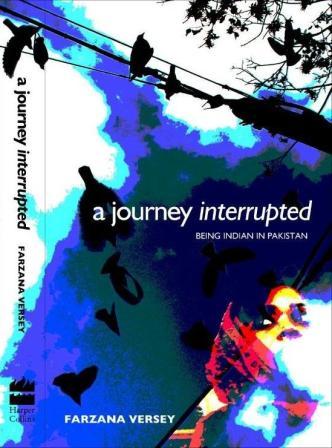Negotiating for an identity
Deccan Herald
The book tries to give as complete a slice of Pakistani society as possible, without any obfuscation no matter how disconcerting the narrative and introduces an array of interesting personalities. So when the Karachi teenagers tire of pornographic sites, they ‘visit Indian sites. There are fights about Indo-Pak issues...and Kashmir is top in the list; then we discuss films, cities and politics.’ UK-based Sikh Satwinder, is rebuilding his father’s lost-in-partition empire in Lahore, ‘...his way of hitting out, telling Lahore that he is rebuilding his father’s life’; Shujat, wants to have an affair with ‘Not just an Indian woman, but a Brahmin one’, which would not be ‘about love, but hate...like war’; Tariq thinks ‘..the Hindu is a stigma for Muslims, anyway, they are definitely not seen as the same as us’.
Against them is juxtaposed Jeremy, the Christian, who does not care that he cannot discuss Christianity in social gatherings like Islam is discussed, so long as ‘I am allowed my drinks, I carry my name and I go to church...’, Nihal, who wants a break in Bollywood for ‘Bollywood is the place to be, even our established actors want to make it there.’
Khalid Ahmed, in charge of the ‘Beyond Borders’ concept in Pakistan, who, born in Patna came to Pakistan as an adult and carries all these — ‘a Bihari identity, an Indian identity and a Pakistani identity’. Sheema Kerwani ‘dances in a society where she is not permitted to, to the strains of Indian music in a form that was created as a celebration of Hindu gods. But for her Lord Krishna is not just a clay idol, but a vision of love...’. For Ardeshir Cowasjee, ‘a motherland is a motherland. If I am asked where I was born, I would say India. In 1929, this was India’. And Parvez Hoodbhoy, who rejects that there is a Pakistani culture and sees a ‘deliberate attempt to ‘Saudi-ise’ it, as opposed to accepting a South-Asian identity’.
The academician, the harlot, the delinquent juvenile mystic, the rich Sindhi Hindu, the gay, the lesbian, the Afghan refugee, the poet, the civil rights activist — all are touched upon.
There are some beautiful imagery and moments of reflection. And the author’s own journey through her many fractured identities — as a woman, an Indian, a Muslim, a Muslim in India, an Indian Muslim in Pakistan — ‘the emotional mulatto. The fence sitter who could not make up her mind. But when did I have a choice?’
The style at times is reminiscent of M J Akbar, but unfortunately the author is unable to sustain it and the reader’s interest. So it becomes an endless series of interviews culminating into analysis often defensive and judgmental. The incessant questions, the disjointed narratives and the constant refrain of the Babri Masjid demolition combine to dull the reading. There are also some sweeping and simplistic generalisations: ‘Unlike in Mumbai...in Pakistan a Parsi can at least die with his faith intact’, 'This was how the Hindu mind, the urban, western-educated mind was thinking’, and a sorry apologist argument about the blowing up of the Bamiyan Buddhas.
The ending is poignant; witnessing the ‘Beating the Retreat’ at the Wagah border on the Pakistani side, the author bursts into tears when she hears the voice of Lata Mangeshkar from the Indian side against the Pakistani backdrop of Allahu Akbar. “I could not explain. Allah-u-Akbar and Lata Mangeshkar are both embedded deep in my consciousness. Both are part of my personal history.” These lines convey the message that the rest of the book struggles to. All the challenges, the contradictions, the anger, the pain and smugness of being a Muslim in India come gushing forth. So while A Journey Interrupted leaves one with insightful vignettes of Pakistan, its tortuous tryst with its identity-based destiny, the book is also about the author’s attempt to negotiate her own identity.

